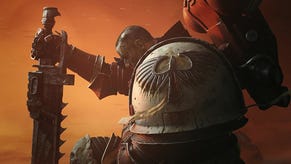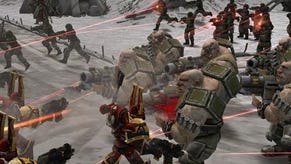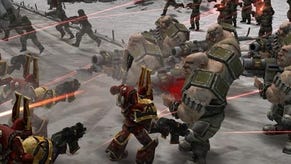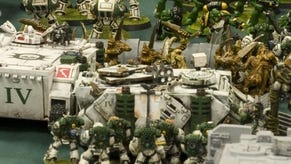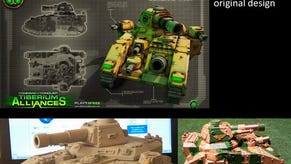Warhammer 40,000: Dawn of War II
A new dawn for the RTS?
Real-time strategy is getting too niche, reckons Relic. It's hard to think of a recent RTS game that didn't start out with this very same mission statement; a preview of one that didn't contain promises to scrap the genre's hang-ups, start afresh and bring it to a new audience (with the exception of the stubborn StarCraft II, Blizzard presumably being happy with its "niche" of hundreds of thousands of crazed fans).
World In Conflict, Supreme Commander, Relic's own Company of Heroes: they all made some important strides, they are all excellent games. Yet still the RTS fanbase refuses to grow, and here we are, sat in THQ's E3 suite, hearing it all over again - applied this time to the sequel to the successful Warhammer 40K-licensed Dawn of War. Relic says it's going to steer clear of the genre's weaknesses, make it more accessible, more involving, more rewarding.
The thing is, this time, we believe it.
RTS games aren't the easiest to demonstrate, but Relic's showing leaves us impressed with Dawn of War II's immediacy, and itching to try it hands-on. It's the most confident and exciting showing of a PC-exclusive game since Blizzard debuted Diablo III last month, and yes, that does include BioWare's slick Dragon Age presentation at E3. It all just makes such perfect sense.
The robust, colourful bleakness and violence of the Warhammer 40,000 licence - dark fantasy hurled into the far future, to become even darker sci-fi - is the piece of this neatly completed puzzle that needs no introduction. It was beautifully applied in the first Dawn of War and - with somewhat diminishing returns - across its three expansions. As you would expect, the same is true again. We watch thunderous fire-fights and brutal physical confrontations, as Space Marine squads take on Ork battalions in a dense and dilapidated jungle setting.
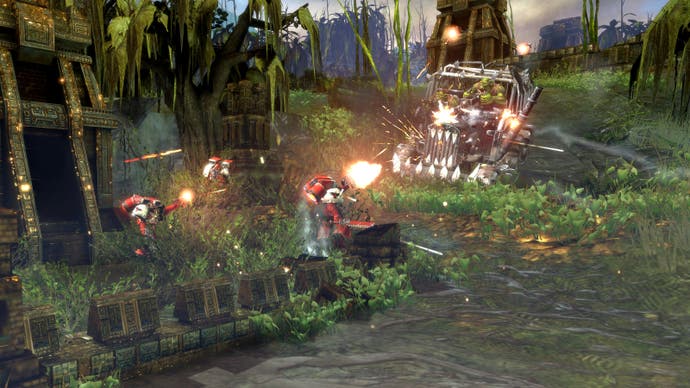
Dawn of War II inherits plenty from critical darling Company of Heroes, Relic's up-close-and-personal take on World War II combat. The environment is heavily destructible; terrain, cover and lines of sight are of critical importance; there's a definite sense of physical connection to combat. There's a strong emphasis on active and credible AI for the units, and an effort to give those units some personality, something for the player to grow attached to.
Relic has gone even further in uncompromisingly axing the resource-management and base-building side of real-time strategy this time around. Dawn of War II simply doesn't have that side. "No more starting over" is the developer's motto. No bases, no resource gathering, no building units, no dithering over force composition. Instead, there's a continuous sense of progression from the RPG-like levelling of squad commanders, and tactical choices come in the form of customising your skill-set before starting a mission.
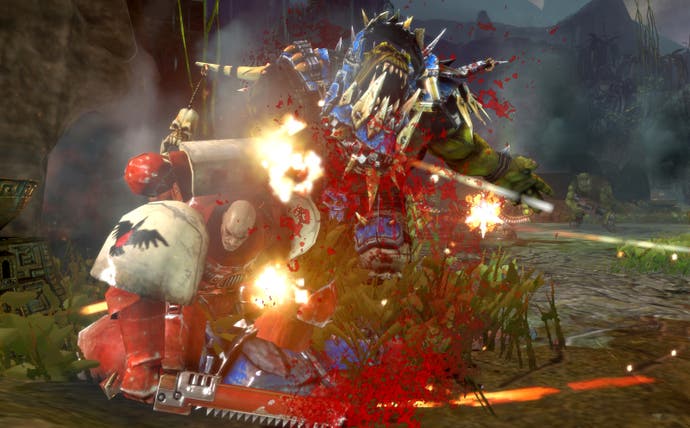
These per-session skills are called Accessories and actually drop as loot, alongside War Gear. A rare example might be an orbital bombardment beacon that can be used to annihilate a tricky outpost, leaving just the cleaning up to your squads. ("Cleaning up" isn't really the right phrase, since Dawn of War II's combat only ever seems to make more glorious mess.) You can collect a pool of Accessories, but only equip a very limited number; you can swap them out between missions depending on preference and availability. This sounds like an excellent, compelling system for tactical variety (and limited get-out-of-jail cards), without forcing you to work your way through a tree of force-composition choices at the start of every map.


